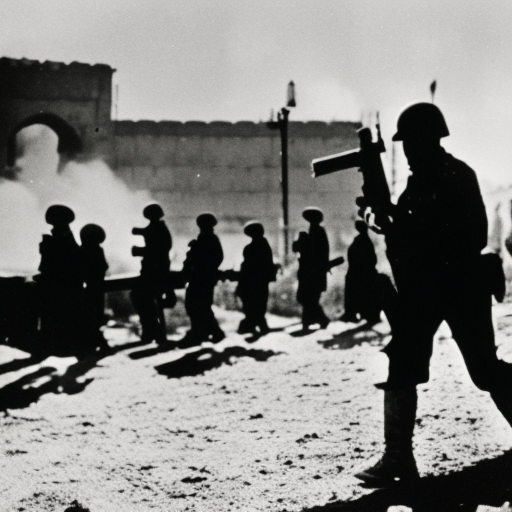Summary:
The Algerian War was a conflict that took place from 1954 to 1962 between France and the National Liberation Front (FLN) in Algeria. The war was a result of Algeria’s desire for independence from French colonial rule. It was a brutal and protracted conflict that resulted in significant loss of life and had far-reaching political and social consequences for both Algeria and France.
Background:
Algeria had been under French control since the mid-19th century and was considered an integral part of France. However, by the 20th century, a growing nationalist movement emerged in Algeria, demanding independence and an end to French colonial rule. The FLN, founded in 1954, became the leading organization advocating for Algerian independence and launched a guerrilla war against French forces.
Course of the War:
The war began with FLN attacks on French military and civilian targets in Algeria. The FLN employed guerrilla tactics, including bombings, assassinations, and ambushes, to weaken French control. In response, France deployed a large military force to suppress the rebellion. The French army, supported by the French government, implemented a strategy of counterinsurgency, which involved the use of torture, mass arrests, and forced resettlement of Algerian civilians.
As the war progressed, the FLN gained support from other countries, particularly those in the Arab and African world. The FLN also sought international recognition for their cause, which put pressure on France to negotiate a settlement. In 1961, the FLN launched a series of attacks in France, including bombings in Paris, which further escalated the conflict.
International Involvement:
The Algerian War had significant international implications. Many countries, particularly those in the Arab world, supported the FLN’s struggle for independence. Algeria became a symbol of anti-colonialism and a rallying point for other liberation movements around the world. The war also strained relations between France and its NATO allies, as some countries criticized France’s handling of the conflict.
End of the War:
By the early 1960s, the war had taken a toll on both Algeria and France. The French government, under President Charles de Gaulle, recognized the need for a political solution and began negotiations with the FLN. In 1962, a ceasefire was agreed upon, and Algeria gained its independence. The war had lasting effects on both countries. In Algeria, the conflict led to significant social and political changes, including the establishment of a socialist government and the nationalization of industries. In France, the war prompted a reassessment of its colonial policies and contributed to the decline of its empire.
Legacy:
The Algerian War had a profound impact on Algeria and France. In Algeria, the war is remembered as a heroic struggle for independence, and its leaders, such as Ahmed Ben Bella and Houari Boumediene, are revered as national heroes. The war also shaped Algeria’s foreign policy, as it aligned itself with other anti-colonial and socialist movements. In France, the war led to a period of introspection and soul-searching, as the country grappled with its colonial past and its treatment of Algerians. The war also had a lasting impact on French society, particularly in terms of immigration and multiculturalism.
In conclusion, the Algerian War was a significant event in the history of decolonization and had far-reaching consequences for both Algeria and France. It was a brutal conflict that resulted in the loss of thousands of lives and left a lasting impact on the political, social, and cultural fabric of both nations.












